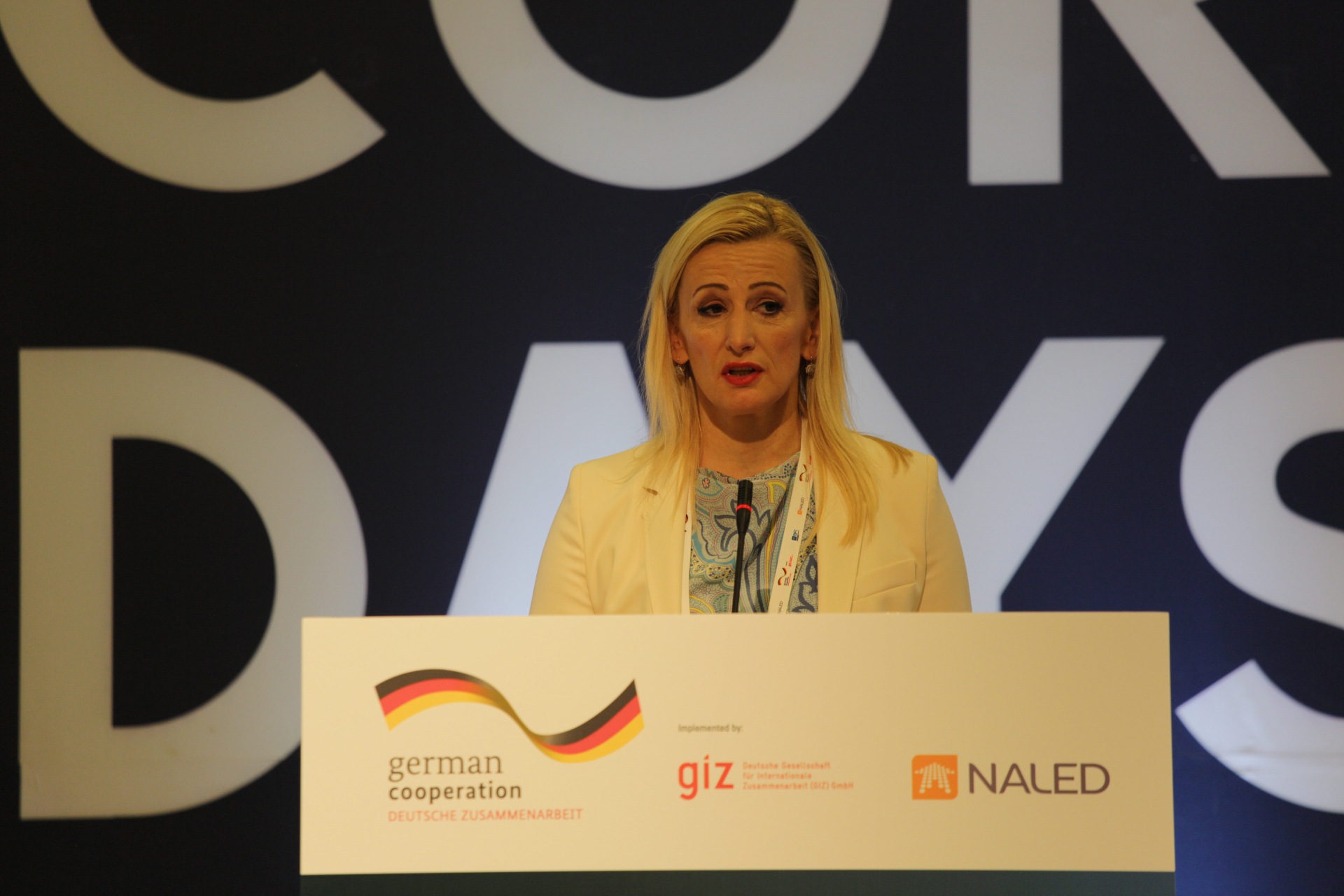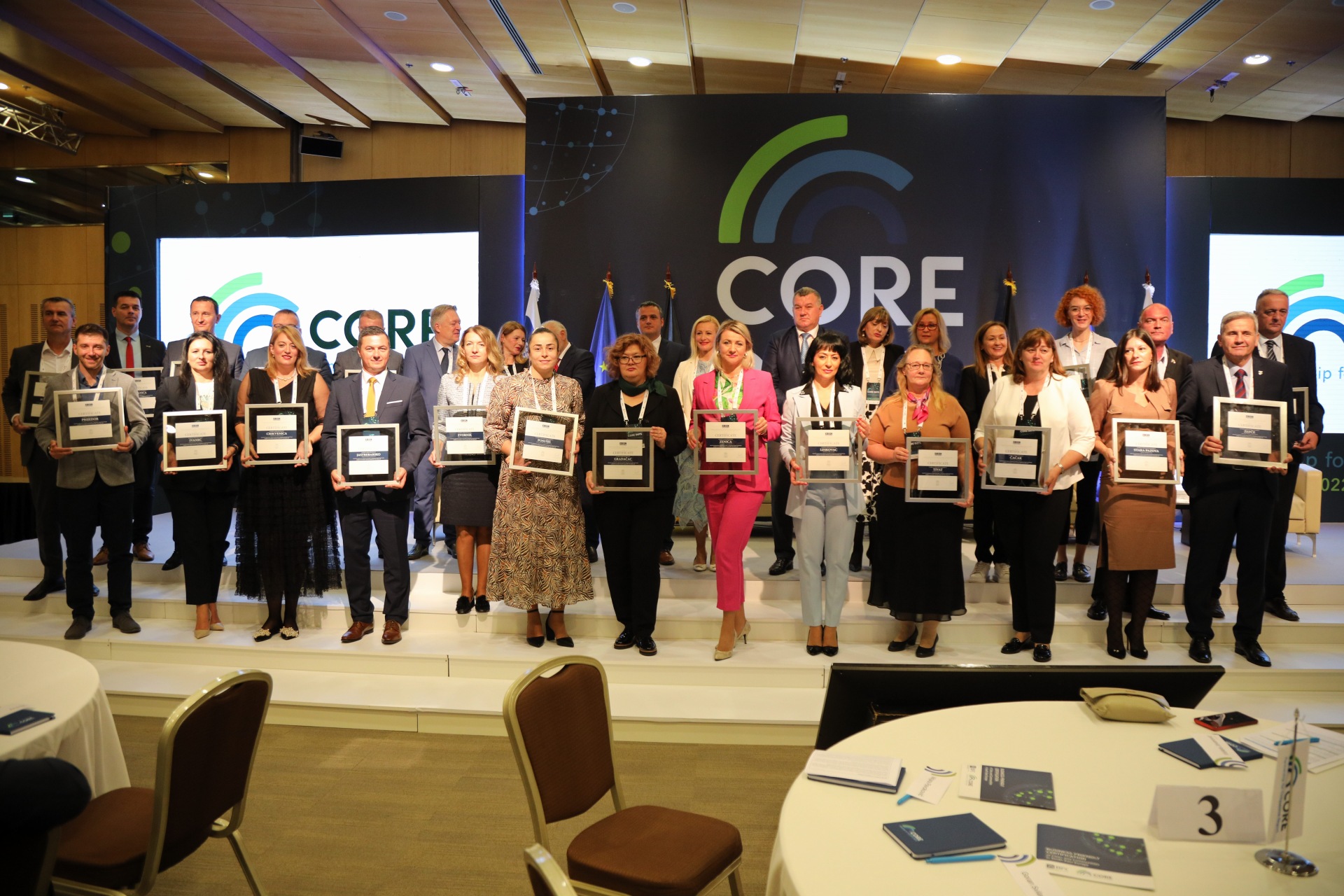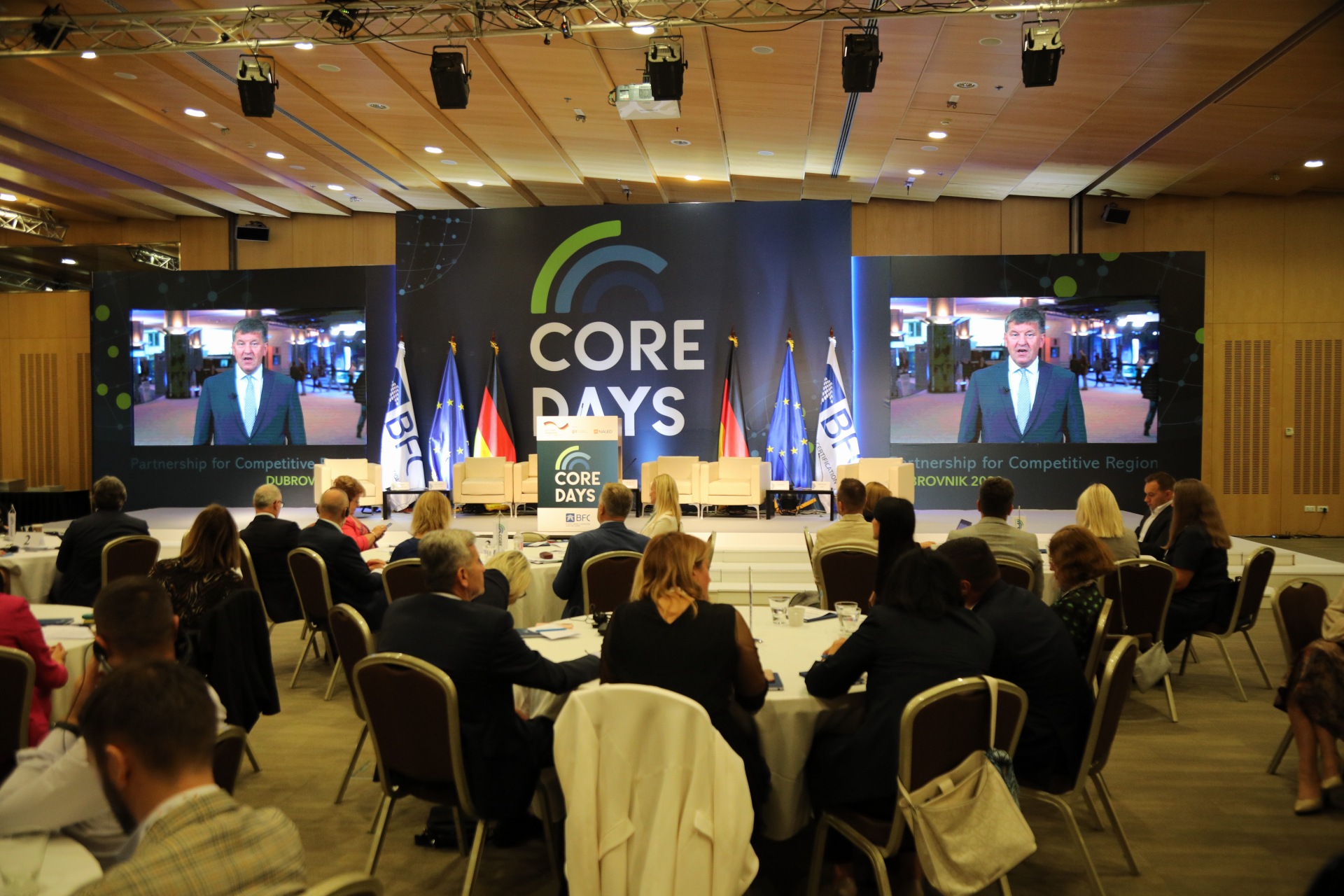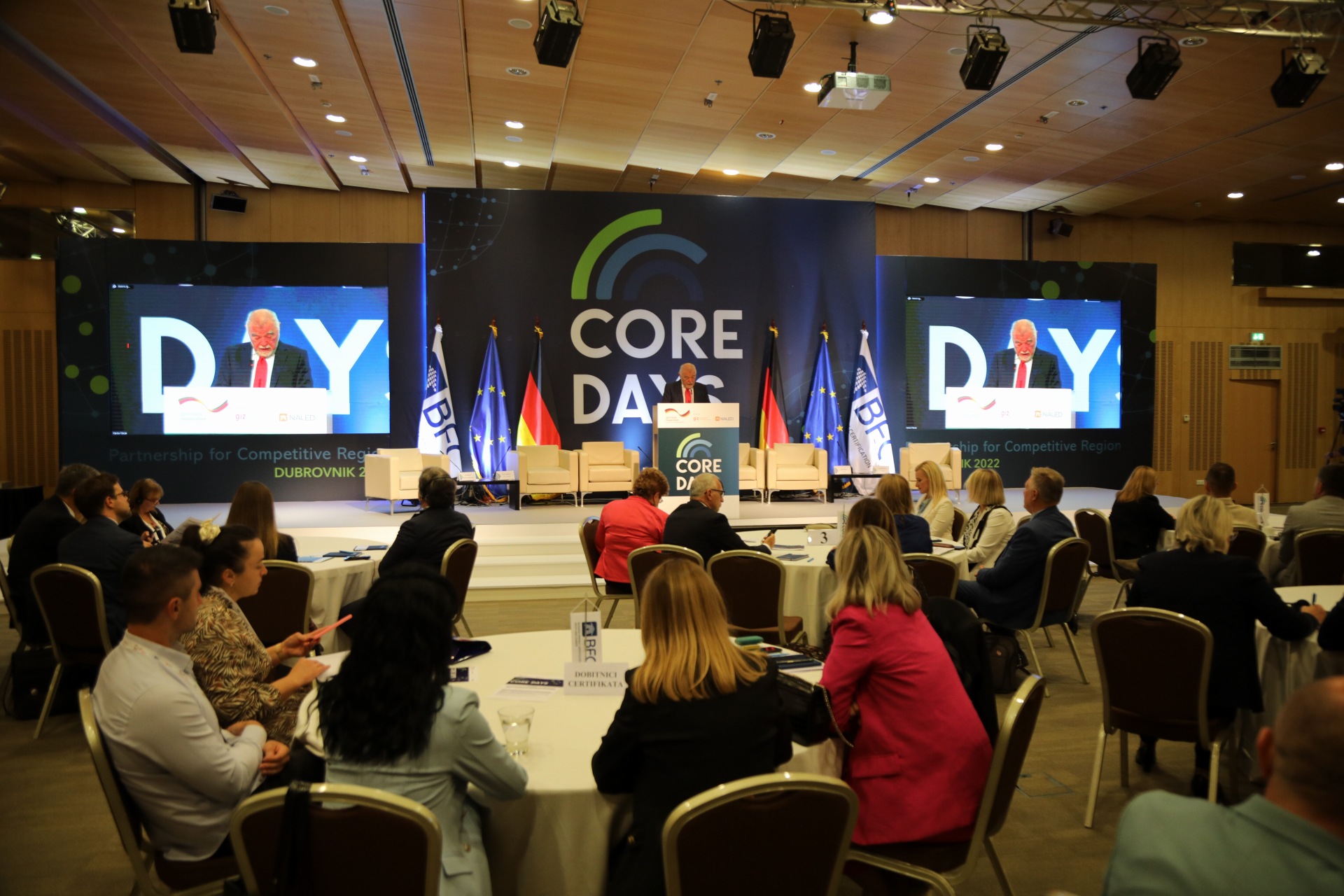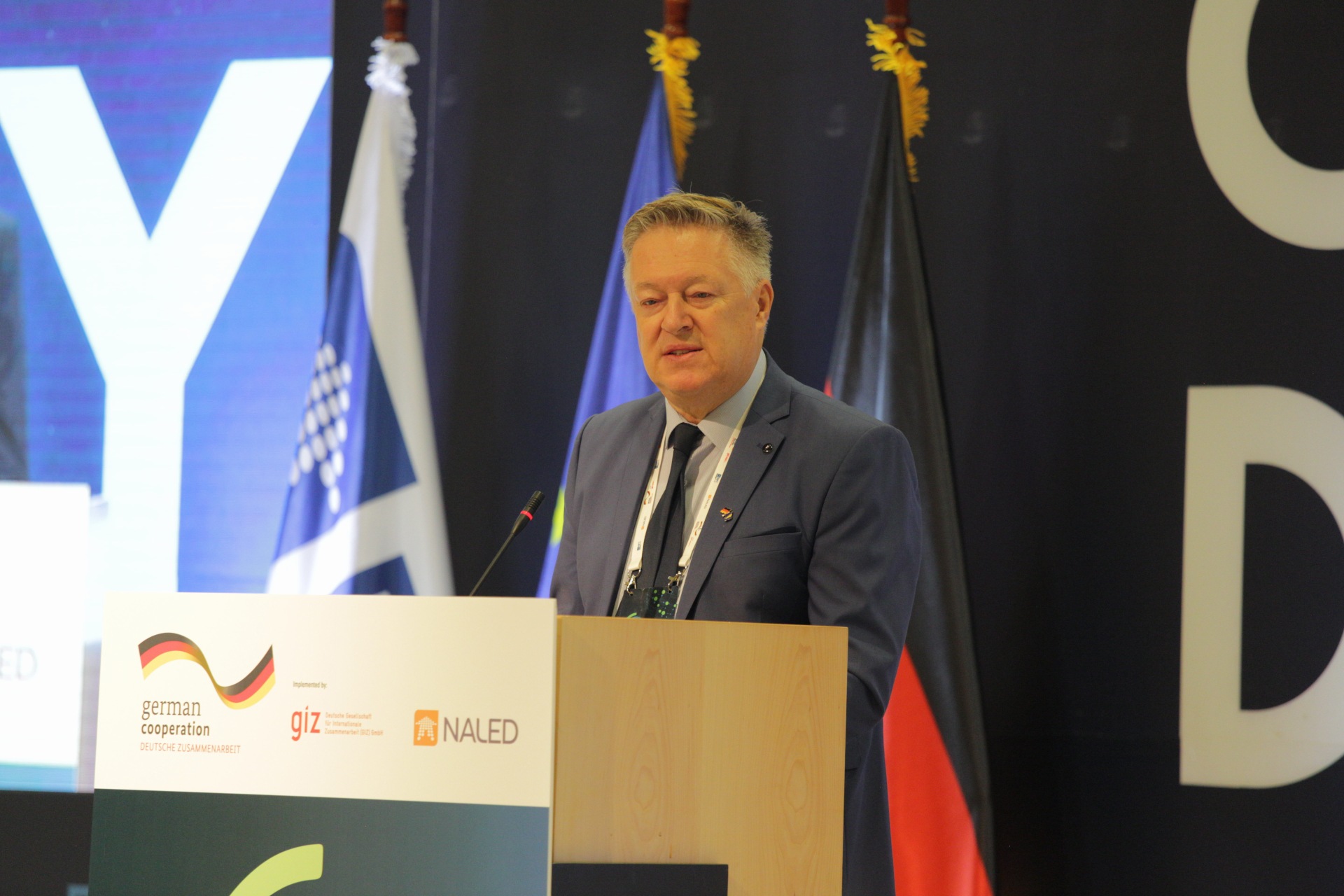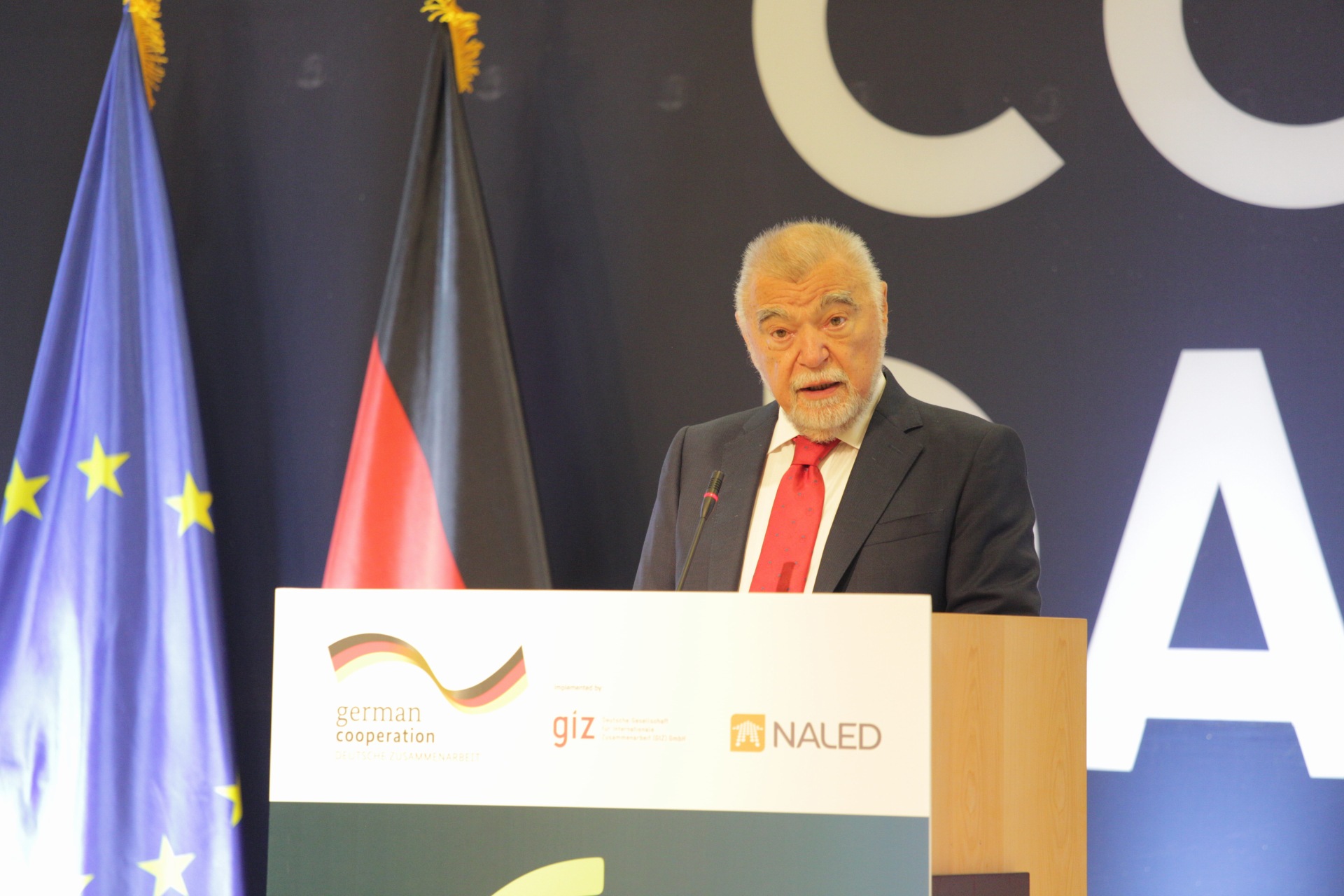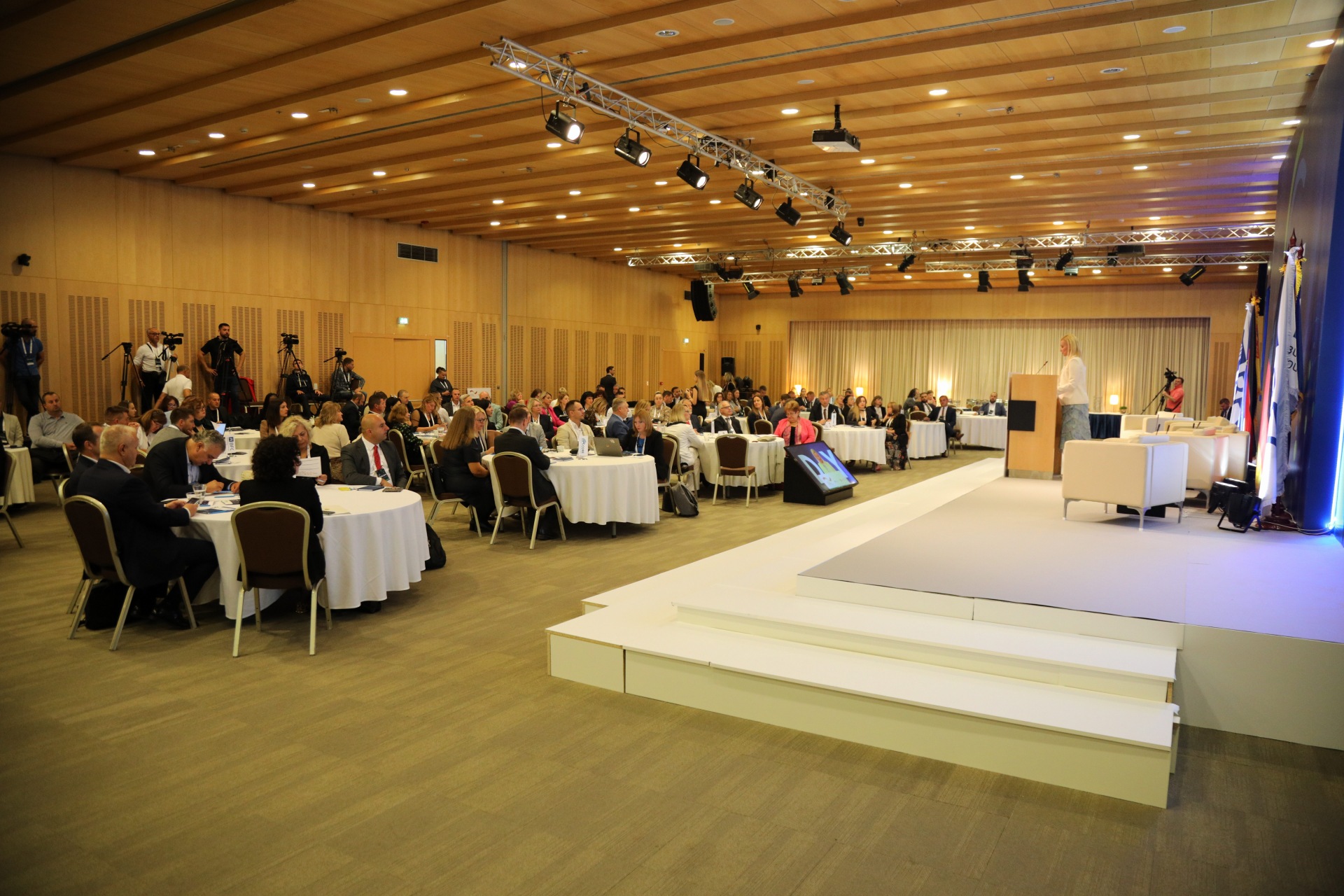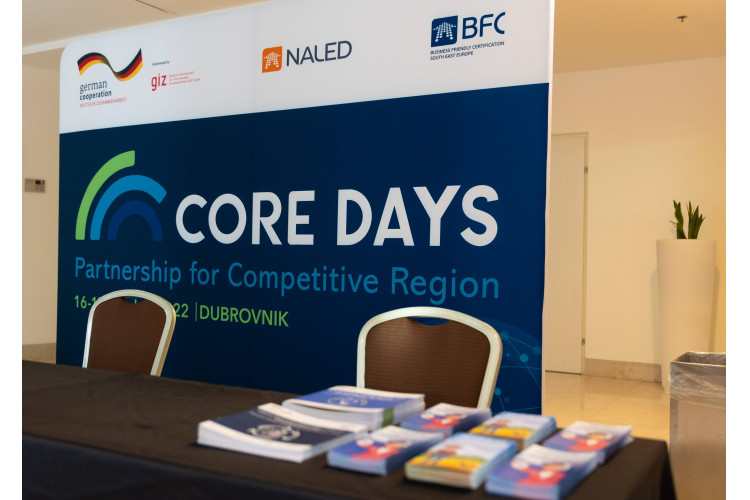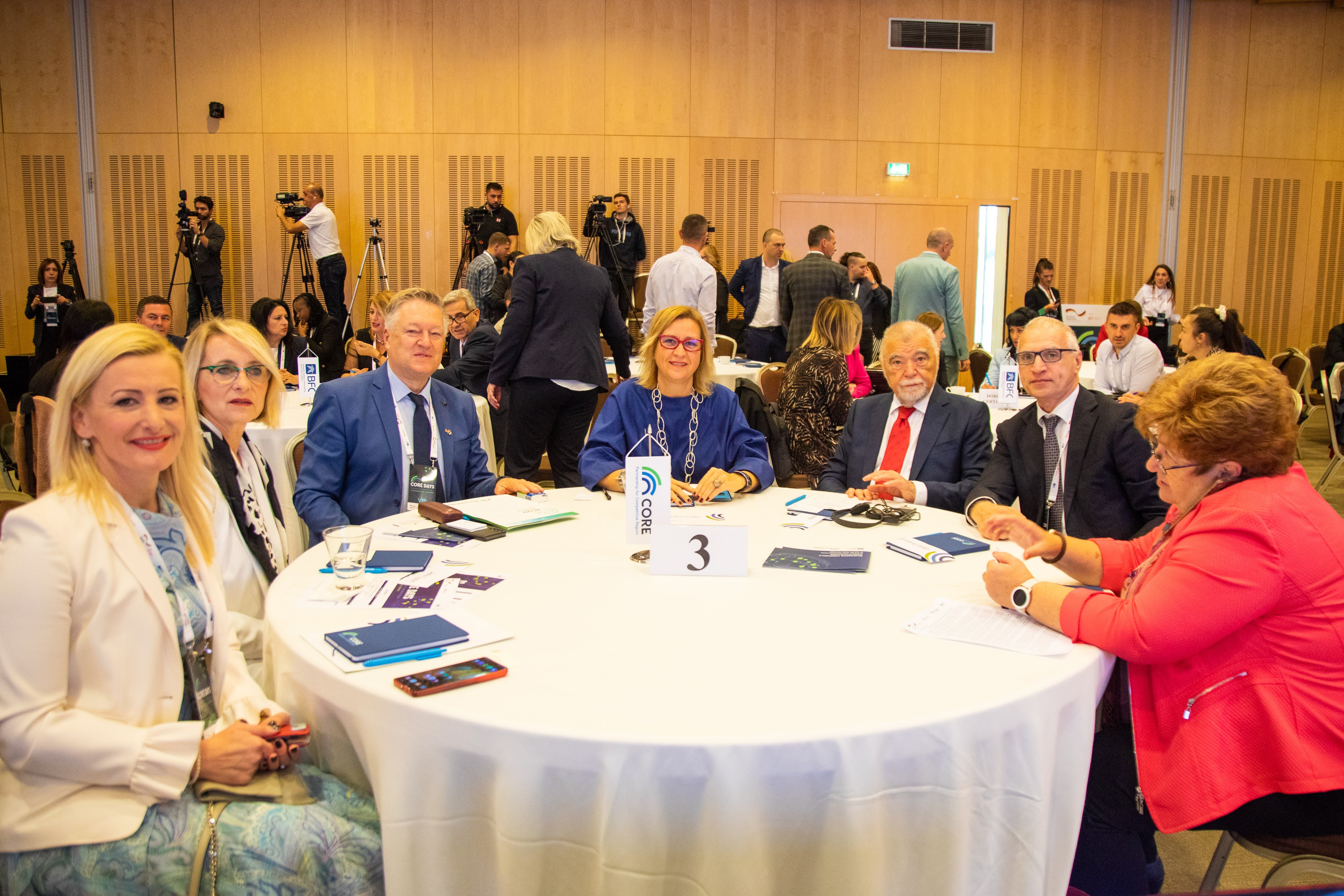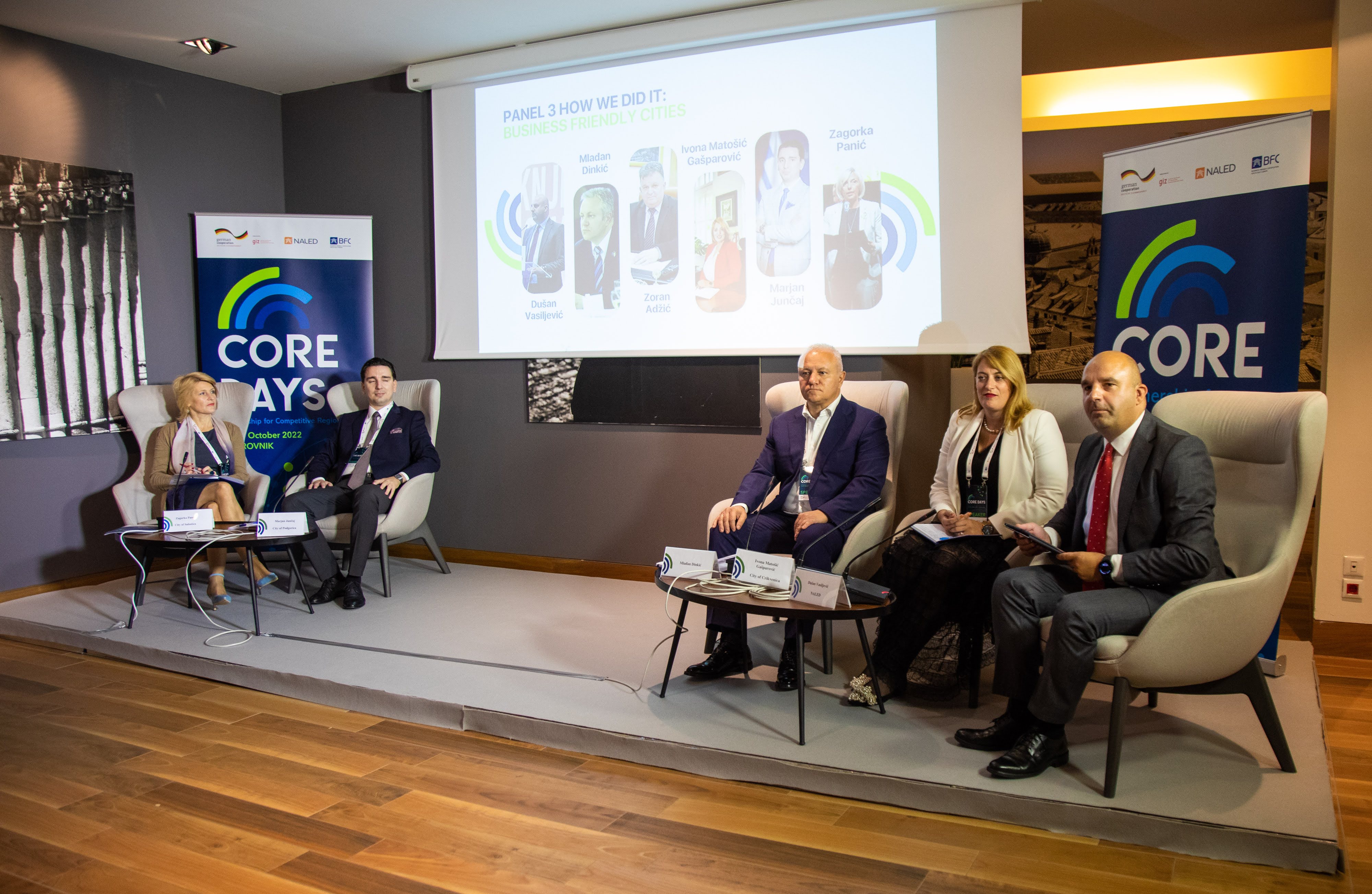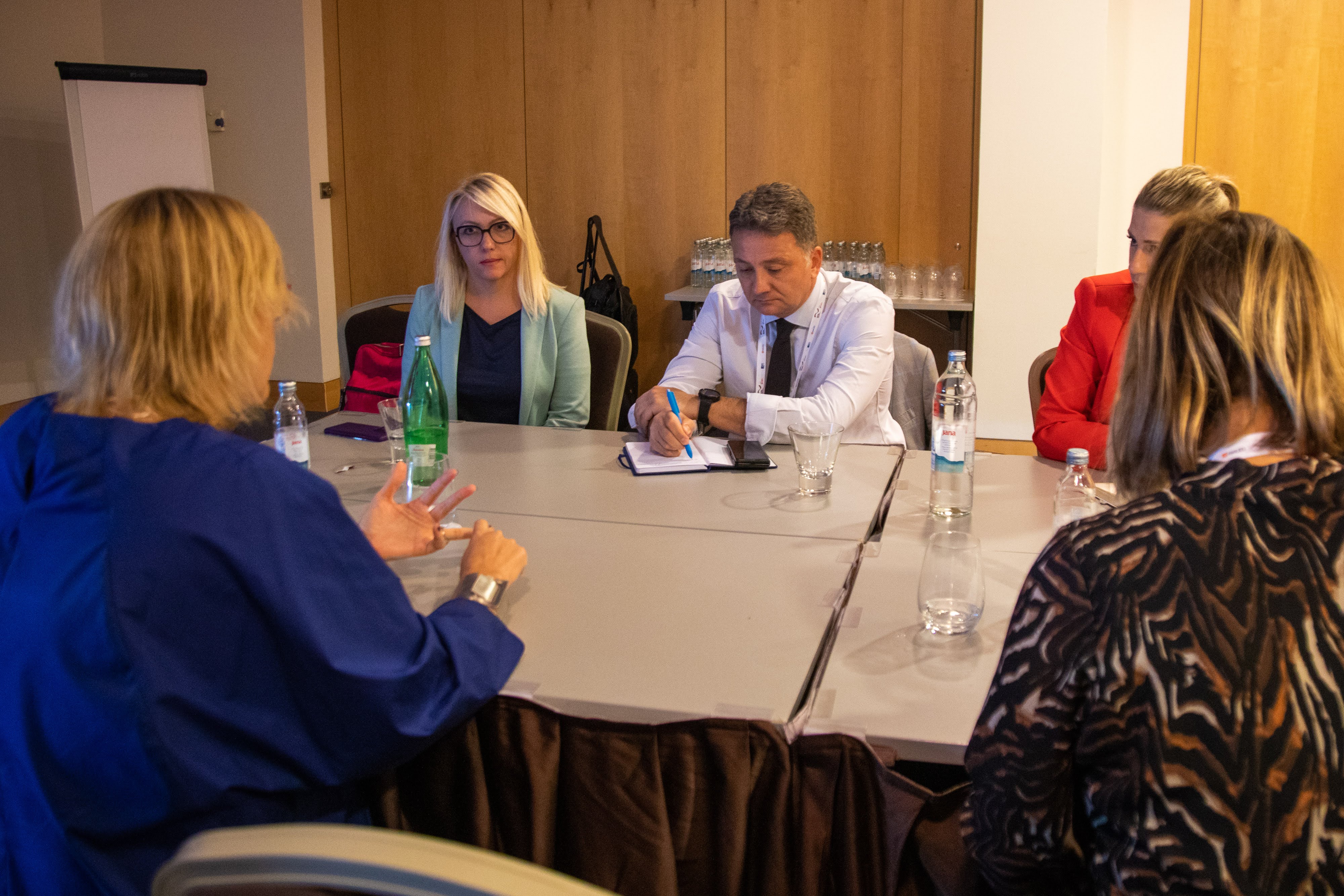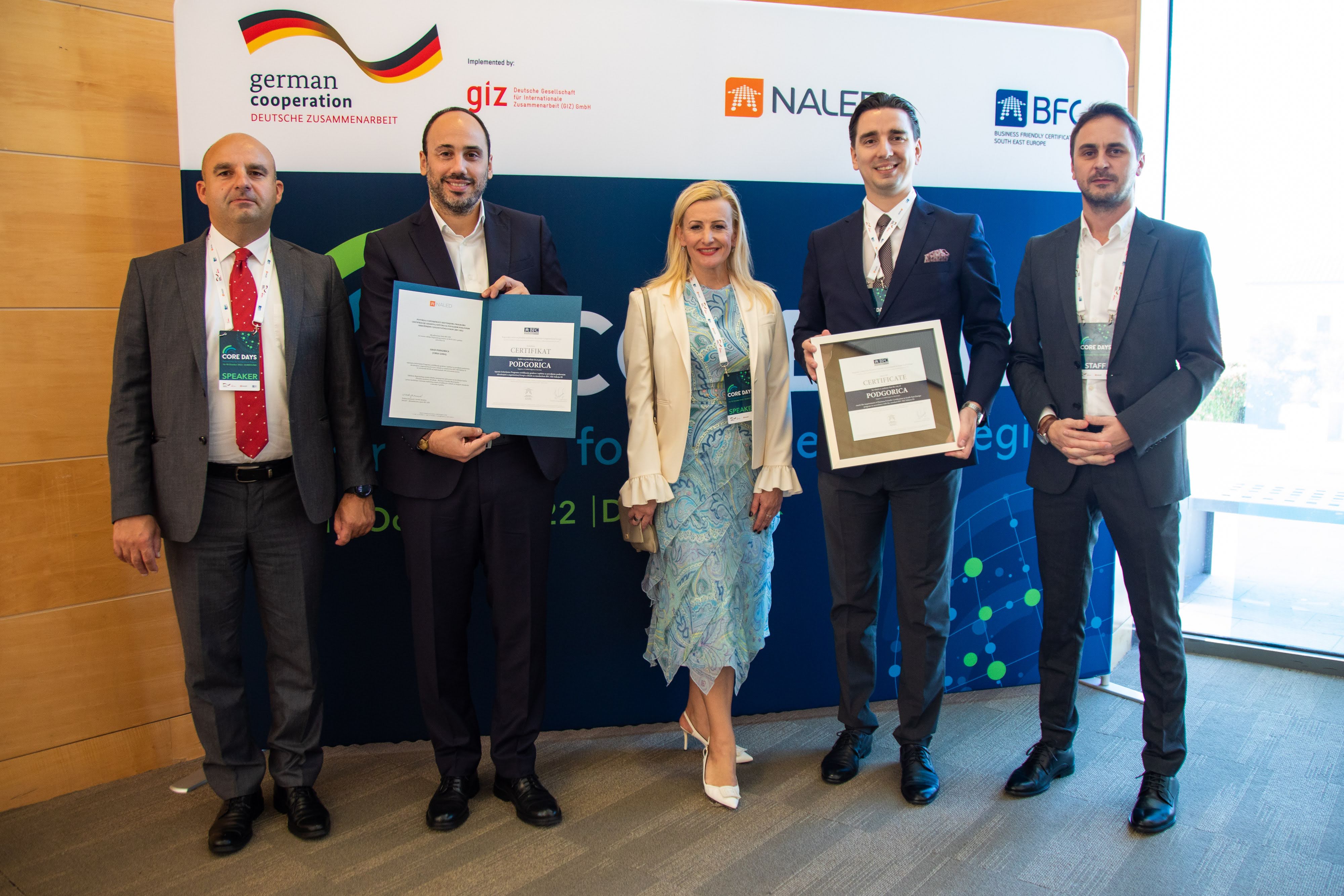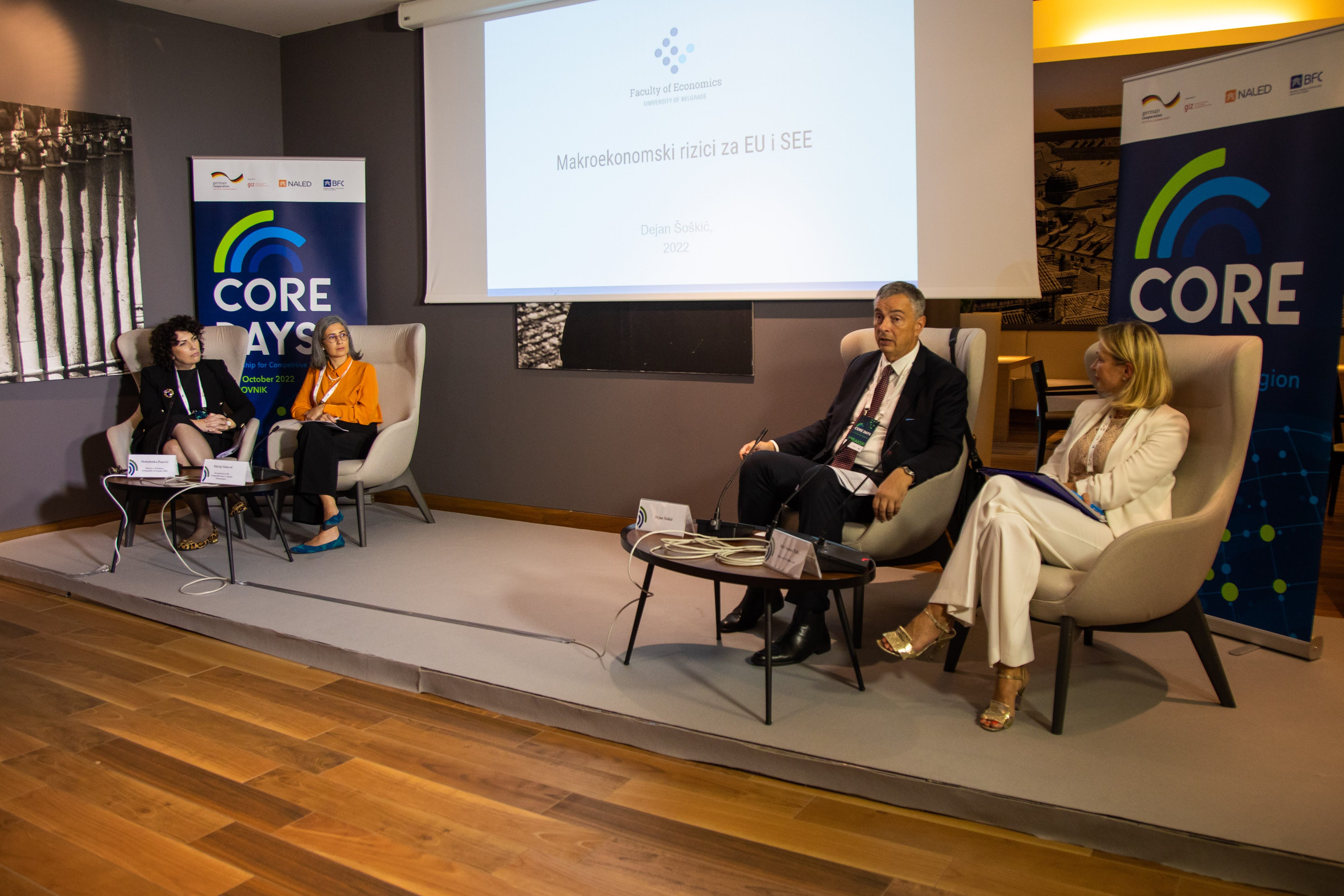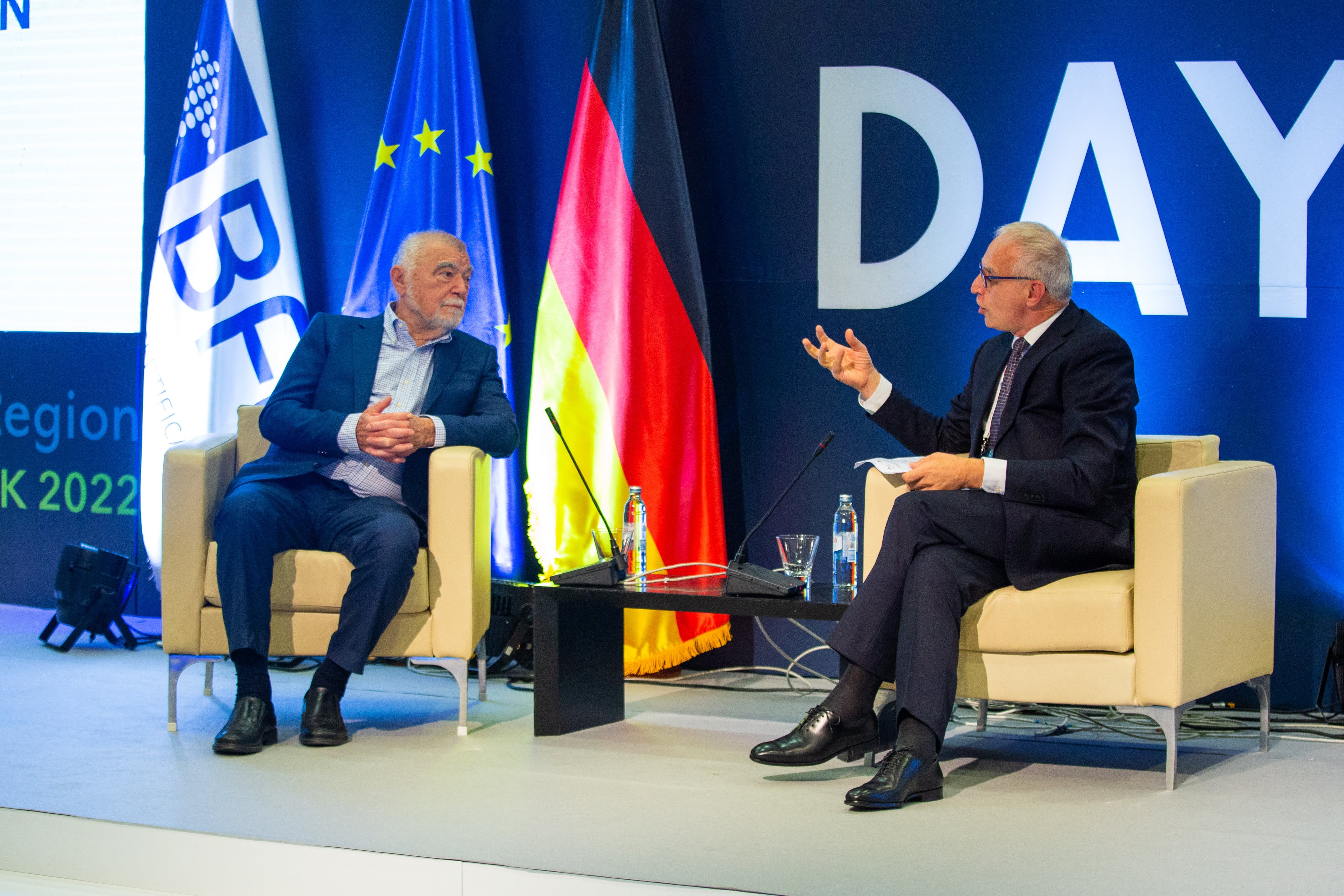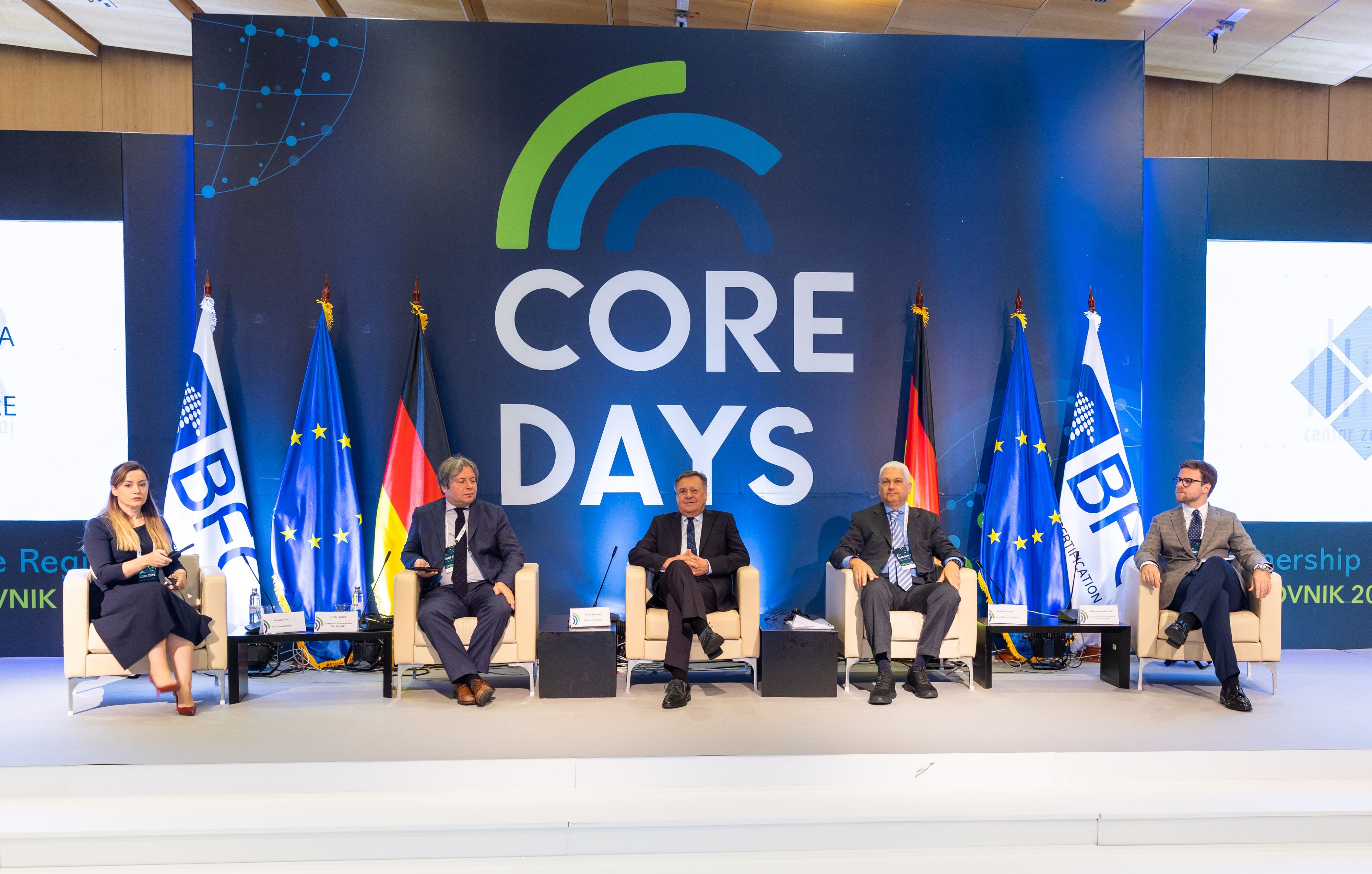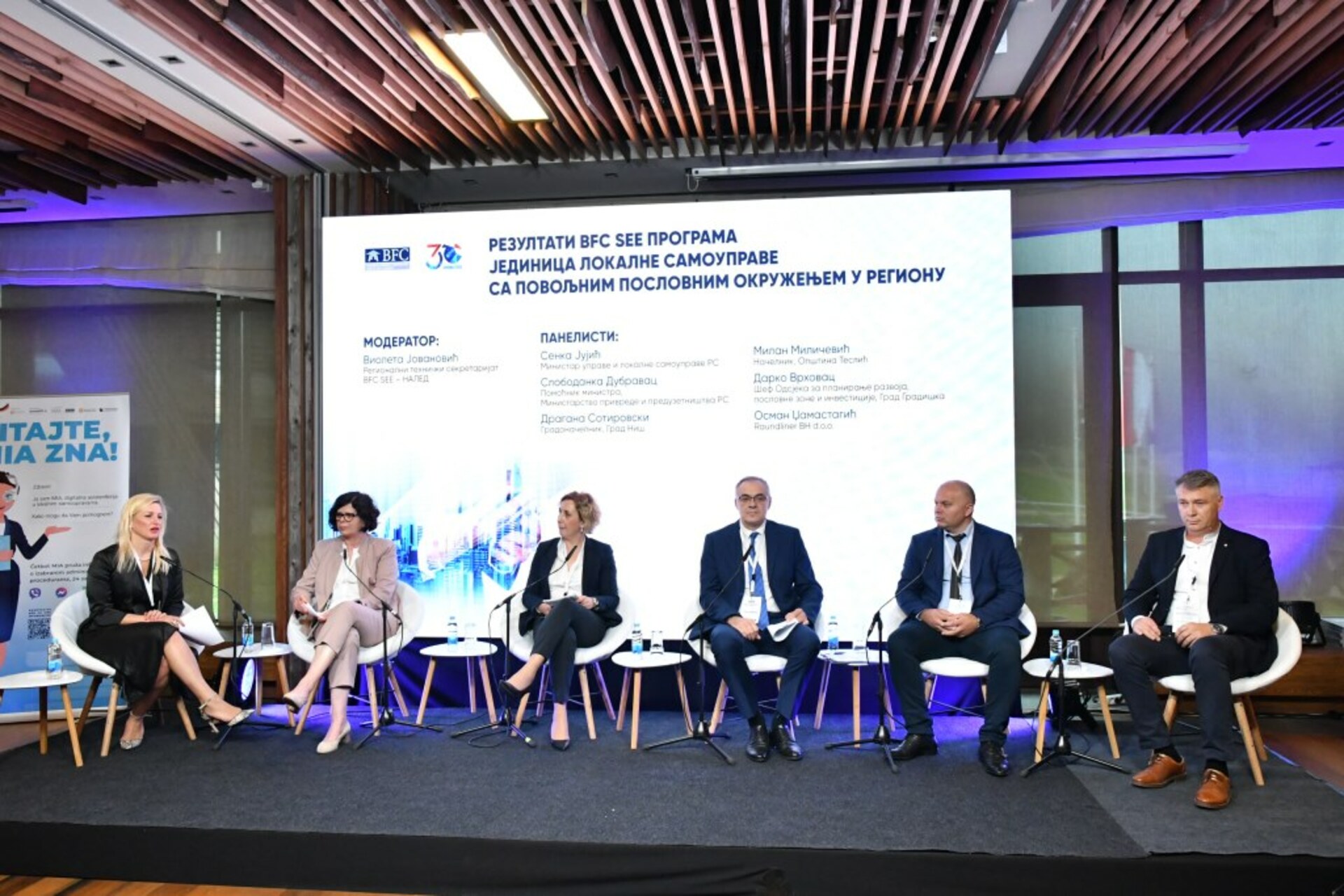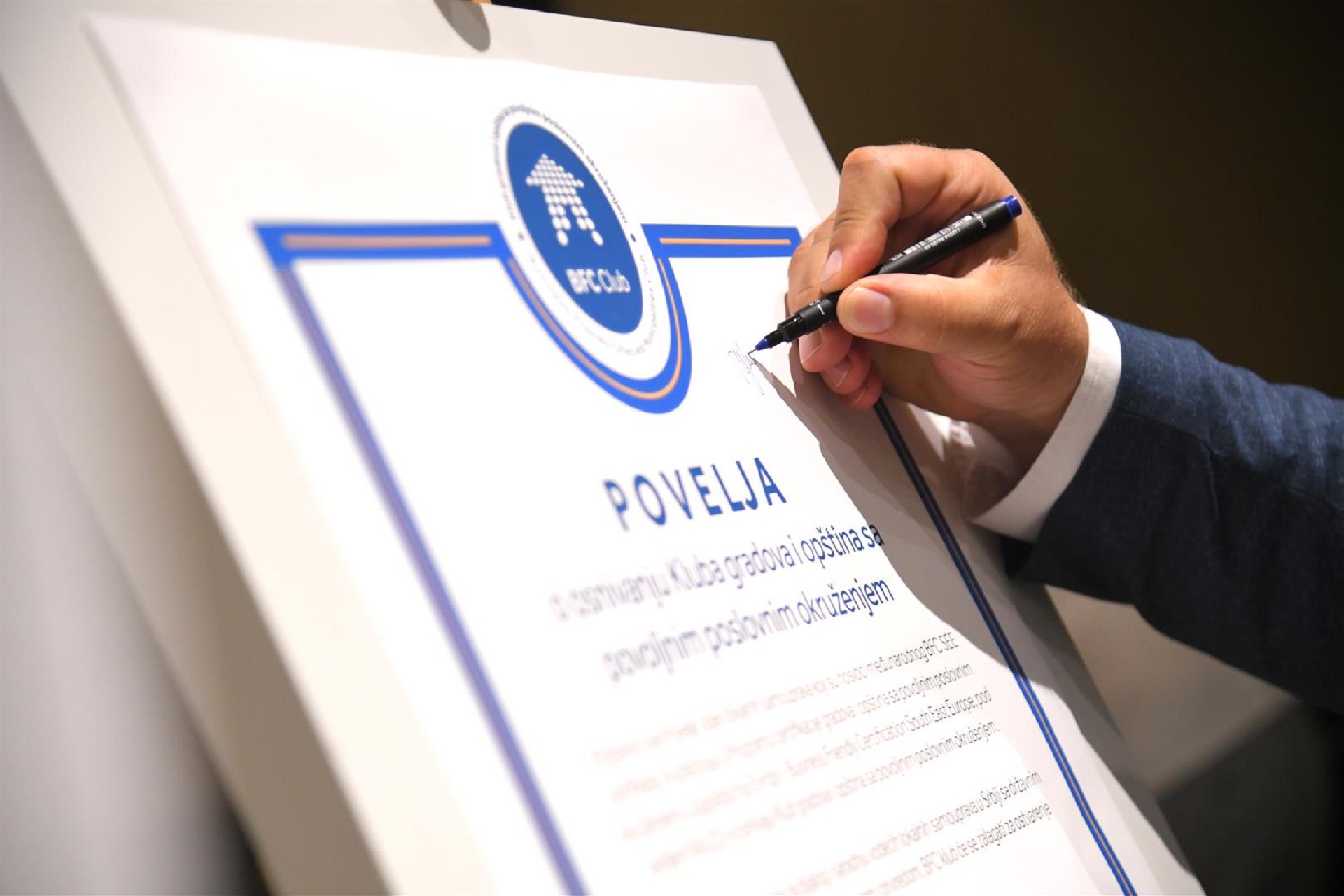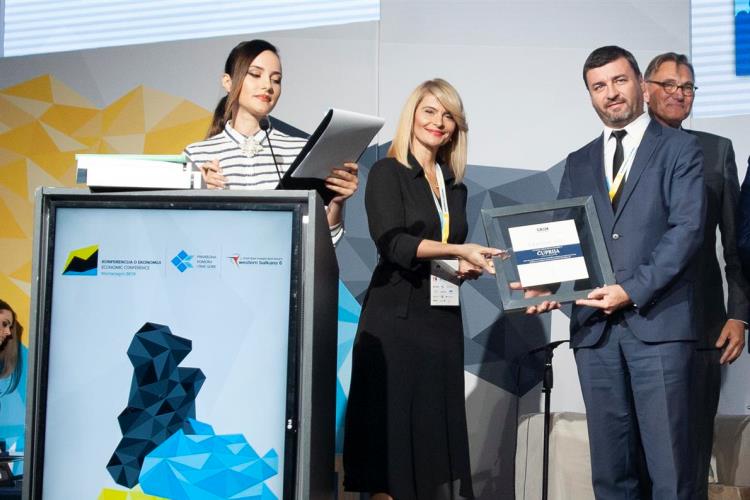Seven cities and municipalities from Serbia received a regional business friendly certificate
Novi Sad, Čačak, Leskovac, Ruma, Bor, Stara Pazova and Pećinci have successfully undergone the Business Friendly Certification Program in Southeast Europe (BFC SEE) and have earned a certificate, as a seal of quality confirming that they provide services to citizens and businesses at the highest international standards. The certificates were presented to them today at the three-day regional conference Core Days 2022: Partnership for a Competitive Region in Dubrovnik.
Certificates are awarded by the Regional Business Friendly Environment Network in Southeast Europe, which gathers more than 20 partner organizations from Croatia, Bosnia and Herzegovina, North Macedonia, Montenegro and Serbia, and the event also marked the official expansion of this platform. The regional network was joined by partner organizations from Albania and Kosovo*, and the goal is for their 16 local self-governments to enter the certification process by the end of 2023.
Certificates are issued by the Regional Business Friendly Certification Council in the South-East Europe that gathers more than 20 partner institutions from Croatia, Bosnia and Herzegovina, North Macedonia, Montenegro and Serbia, while the expansion of this platform has been confirmed at the event. Partner organisation Association for Local Autonomy from Albania and Institute for Development Research RIINVEST from Kosovo*, that will implement the certification of their local governments, have joined the regional network. The goal is that eight local governments from Albania and Kosovo* each, join the BFC SEE by the end of 2023.
Core Days 2022 conference is supported by the German Development Cooperation implemented by GIZ and has gathered the representatives of government institutions, institutions in charge of improvement of business environment, local governments` leaders, businesses and civil sector representatives in order to discuss the improvement of the cooperation and exchange of practices for the implementation of economic reforms at the national and local levels. The event was opened by Mr. Stjepan Mesić former president of Croatia.
– Economic co-operation between economies in the Balkans is key to economic development, but unfortunately, it depends on political decisions and peace not only within this region but also Europe and the world. We now see clearly the power of politics over economy in the war in Ukraine, which although not the subject of this gathering, can have an even deeper negative impact on the stability and economic development of this region and beyond, Mesić said.
Sector manager for GIZ Open Regional Fund for Modernisation of Municipal Services Mr. Peter Wolf emphasized the importance of the Regional network expansion which is evolving in the platform for the exchange of successful reforms with the name Partnership for Competitive Region (CORE).
– Together with our partners, we have achieved another successful year of cooperation in improving business conditions in the region. We welcome new partner organisations from Albania and Kosovo. This year, as a result of joint efforts, our network has grown and now covers all six western Balkan economies, Wolfe said.
NALED Executive Director Violeta Jovanović emphasized the importance of co-operation as tighter connections and a higher level of standardization of services in the region will enable better living and working conditions for 20 million citizens and 1,150,000 businesses in this region.
– The partnership for a competitive region will enable its members to continue exchanging experiences and best practices in reforms such as electronic construction permits, eCadaster, electronic registration of seasonal workers, improvement of inspection supervision, digital fiscalization. The partnership will also allow us to publish the first regional report as early as 2023, which will measure economic and political stability and rank the region’s economies according to quality of life and business conditions, Jovanović said.
Via video message, European MP Franc Bogovič addressed to the participants, who cited that understanding, co-operation and partnership are the key to living together, development of local communities, regions, states as well as in the EU. “This is especially important for the coherent regional development and development of rural areas. These challenges are also sizable in all western Balkan countries, where the villages are increasingly emptying. The latest data and forecasts suggest that from 1989 to 2050, the western Balkans will see the largest emigration and population decline – BiH as much as 29%, Serbia as much as 24%, Croatia as much as 22%, and Albania as much as 18%,” Bogovič stressed.
BFC SEE standard and all certificate winners
Since 2012, more than 100 cities and municipalities from Croatia, North Macedonia, Bosnia and Herzegovina, Montenegro and Serbia have undergone the Business Friendly Certification in South East Europe (BFC SEE). Currently, 44 local governments have a valid certificate that lasts for three years. Program implementation is supported by the GIZ Open Regional Fund for the Modernization of Municipal Services (GIZ ORF MMS).
BFC SEE is a unique program for measuring and improving business and investment conditions at the local level. It provides cities and municipalities with clear guidelines for creating a favorable business environment and introducing international standards of efficiency and transparency of local administration in accordance with the principles of good governance. For the existing businesses and potential investors, the fact that a local government has this certificate means that they can count on a stable and predictable business environment in that environment.
The quality of the business environment in local governments is measured through a process that involves meeting a number of demanding criteria, including the possession of a strategic and institutional framework for economic development, transparency of business costs, providing information on available workforce, quality infrastructure and communal services. Since the BFC standard is constantly improving, it now also includes criteria referring to digital transformation, electronic services, environment protection, innovation, etc. The fulfillment of the criteria is confirmed by an independent international verification commission.
At the CoreDays 2022 conference in Dubrovnik, certificates were presented to a total of 30 local governments that fulfilled the set criteria:
Croatia – Ivanec, Crikvenica, Jastrebarsko;
Montenegro – Podgorica, Tivat, Danilovgrad, Žabljak;
Republic of Srpska – Prijedor, Trebinje, Doboj, Kotor Varoš, Modriča, Teslić, Zvornik, Laktaši , Gradiška;
Federation of BiH – Zenica, Bihać, Gradačac, Jablanica, Posušje, Žepče, Živinice;
Serbia – Novi Sad, Čačak, Leskovac, Ruma, Bor, Stara Pazova, Pećinci.

